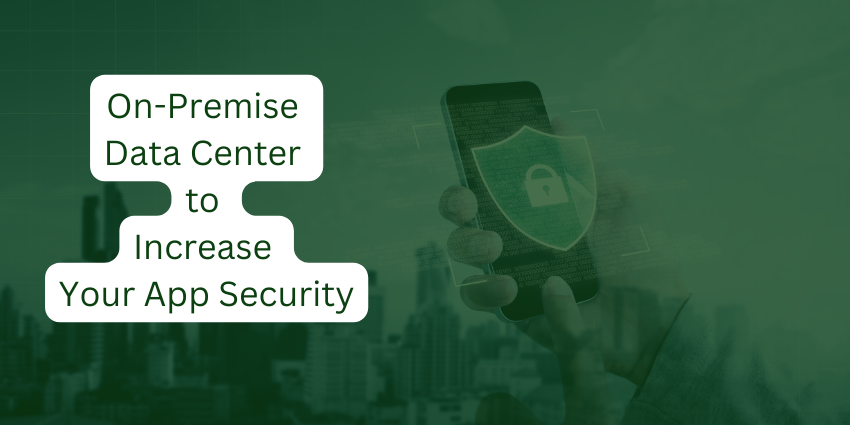Few have not heard of data breaches and security threats these days. This says that every organization should be more cautious in safeguarding their data. On-Premise Data Centers are one of the ways organizations can acquire this protection.
What is an on-premise data center?
A data center is a facility where computer servers and other hardware are. These facilities provide the necessary infrastructure to store, process, and protect data. The size of a data center depends on the number of servers it has to support.
The security of your app is crucial for its success, especially in this age where cybercrime is rampant. You must ensure that your app does not fall prey to hackers and malicious attacks from third parties.
An on-premise data center is a data center that you own or have access to and install your hardware. It’s located under your control in an environment (called DCOS) with less likelihood of attacks. This data center can protect your data from physical and cyber security threats.
What are the benefits of using an on-premise data center?
There are several benefits to using an on-premise data center, especially for businesses with a large amount of sensitive information that requires maximum security. Some of these benefits include:
- Increased Security – With an on-premise data center, your business will have complete control over who has access to your data. This means you can limit access to only those employees who need it and keep intruders out.
- Reduced Costs – An on-premise data center will also help you reduce costs by eliminating the need for expensive cloud storage fees. This can be especially beneficial for smaller businesses that don’t want to spend thousands of dollars monthly to store their files in the cloud.
- Reliability – With an on-premise data center, your business will never have to worry about losing its files or having them deleted by accident. You’ll always know where your documents are stored and how IT professionals who understand their importance protect them.
Another benefit of using an on-premise data center is that it has technical experts who can help you in case of any problems.
Some data center providers offer 24/7 support services so that they can assist you whenever you need them. This ensures that your business remains operational, regardless of what may happen in the future.
Why should you opt for an on-premise data center?
The primary use of an on-premise data center is to provide redundancy for critical applications and services. If you have hosted applications like email, CRM, or ERP, you will want to make sure that there are backups of these systems available in case the cloud provider suffers from outages or security breaches.
If you depend on cloud providers for all your services, then losing access to those services can devastate your business continuity plans.
Having an on-premise option means that if there is a problem with one of these services, it will not impact your entire network, and you still have access to mission-critical applications and tools.
You may want to use an on-premise data center. for many reasons. One reason is that you need more security than a third party can provide.
For example, suppose you have sensitive information such as credit card numbers or patient records. In that case, you will want to ensure that this information is safe from hackers and other unauthorized users.
If your business sells products or services, your customers must trust you with their personal and financial information. The last thing that any company wants is for their customers to be wary of their security measures and therefore lose sales because of it.
Another reason businesses choose an on-premise data center over third-party alternatives is because they do not want any downtime in their operations. If there were any issues with third-party services, the company would suffer from lost productivity while they wait for the service to go back online.
Conclusion
A few positive points to taking the On-Premise Data Center route with your app are security, speed, and the lack of third-party interference. But ultimately, it’s about what works for you—and for many, the Cloud is an easier route. Just keep in mind all your options before deciding because it’s possible that today’s environment might not be tomorrow’s.
On-Premise Data Centers are better at keeping information secure because they are not in another state with no physical presence of your company.
Read more about: data center improvement

